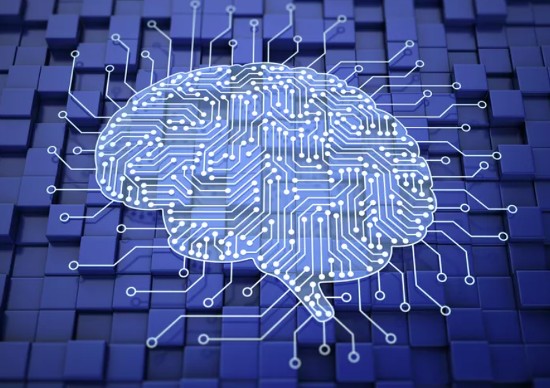In Part 1 of this Conversations About AI series, I introduced a guest contributor’s ideas on how AI (artificial intelligence) requires us to rethink how we educate humans to deal with this burgeoning new reality.
In this latest edition in the series, another guest contributor, Aryan Pandey, who is writing here for the first time, weighs in on using AI to transform treatment of mental health and the promotion of social good.
I can’t help myself but note, considering how many science fiction movies have AIs and robots running amok, that there is no mention of therapy options for AIs experiencing mental health crises, or for that matter AIs that don’t interpret social good in malicious ways (think Logan’s Run as an example). But that’s a topic for another occasion.
So please welcome Aryan who is a Digital Consultant at Accenture in Japan. Aryan produces a technical blog called DigitalCrate. He is passionate about science and technology, and is obviously fascinated by AI and how it can be used positively to advance the human condition in the 21st century.
AI for Mental Health
Can artificial intelligence truly transform mental health care? The answer lies in its ability to revolutionize diagnosis, support systems, and personalized care.
Harnessing the power of AI can assist mental health professionals to enhance accuracy in diagnosis, revolutionize support systems through chatbots and virtual assistants, and provide personalized care tailored to individual needs. AI technology’s potential can lead to more accurate, accessible, and tailored mental health care to meet individual needs. How?
- By transforming diagnosis
- By revolutionizing support systems
- Through improved personalized care
Transforming Diagnosis with AI
AI can be used to diagnose mental health conditions more accurately and efficiently than traditional methods. The algorithms can analyze large amounts of data, such as medical records and patient surveys to identify and indicate mental health condition patterns. This helps to reduce the time involved to diagnose a mental health condition and can also improve accuracy of diagnosis. A recent study published in the journal JAMA Psychiatry found that an AI-powered algorithm helped diagnose depression with 90% accuracy, compared to 70% accuracy with human clinicians.
AI-powered mental health tools can help to reduce stigma, provide accessible support, and assist in crisis situations. Here are just a few examples with a link to others:
- Pear, an AI chatbot that helps individuals personally manage their mental health.
- Woebot, an AI chatbot that addresses coping mechanisms for dealing with anxiety and depression.
- Wysa, an AI chatbot that provides 24/7 support and guidance for a variety of mental health issues.
- Happify, an AI that provides activities and games designed to reduce stress and negative thoughts.
You can check out additional AI-mental-health wellness apps by clicking on this link.
How AI Helps with Mental Health
Machine-learning, a form of AI, is capable of analyzing vast amounts of structured and unstructured data to uncover distinct patterns. Applying it to medical records, patient surveys, charts, and genetic information, as a result, can lead to better mental health treatment options.
AI Virtual reality therapy can be used to treat anxiety disorders through virtual exposure using headsets that create anxiety-provoking situations within a controlled and safe environment. AI Cognitive behavioural therapy can be used to track a user’s progress, provide feedback, and personalize treatment for a wide range of conditions.
Of course there are ethical considerations. Challenges include patient privacy and data security as well as AI acceptance. In addition, AI tools need to seamlessly integrate with existing systems and all uses require transparency and accountability. That means transparency about how data gets collected, used, and shared, and accountability means non-AI systems capable of monitoring and evaluating the use of AI in treatment and development of safeguards.
Future Mental Health AI Developments
As AI capabilities grow we can expect more innovative and impactful applications of the technology including its predictive capabilities for early detection before a nascent health issue becomes more problematic.
AI preventive intervention in the future will provide plans for personalized exercises and mindfulness programs. We are seeing the first generation of AI mental health apps already that provide self-help. But the next generation may flag and alert a user to a suspected condition with options to voluntarily connect to a help community or healthcare providers.
AI for Social Good
AI is rapidly developing technology with the potential to revolutionize many aspects of our existence, but it comes with a cost. AI for social good (AI4SG) is a growing movement seeking to use the technology to address some of the world’s most pressing challenges including using it to address human barriers to equality and inclusiveness, hunger, disease, poverty, and climate change.
Big AI companies are using the technology to develop solutions that address:
-
- Agriculture: CropX is one company developing an AI system that can predict crop yields based on satellite imagery. CropX is using the information to help improve crop yields and food security.
- Healthcare: IBM Watson which recently changed its name to Merative, includes new medical diagnostics and treatments for cancer and other diseases.
- Education: Khan Academy is incorporating AI into its courseware to help close the achievement gap. Listen to Sal Khan talk about How AI could save (not destroy) education | TED Talk
- Environment: Carbon Engineering is using AI to develop new materials that are more effective in capturing carbon dioxide directly from the atmosphere.
- Famine risk identification: The World Food Programme and Save the Children are using AI to identify people at risk of famine.
- Disease tracking: Google Health and Verily are utilizing AI to monitor the spread of diseases.
- Remote medical care: Doctors Without Borders and The Carter Center are using AI to help with medical care delivery to places on the planet suffering from famine, drought, floods, disease, war and climate change.
- Bias identification in hiring practices: IBM and Palantir are using AI to identify and address bias in hiring practices.
- Breaking down jobs access barriers: Workable and HireVue are using AI to find jobs for people with disabilities. Meanwhile, LinkedIn and Catalyst are using the technology to track the progress of women and minorities in the workforce.
- Sustainability: AI is being used to develop more efficient and sustainable ways to use energy, reduce waste, and protect the environment. Solar panel, wind turbine, and other renewable energy technologies companies are finding ways to improve energy efficiencies, streamline logistics, and recycle and reuse the materials contained within their products to reduce waste.
Challenges Using AI for Social Good
There are remaining challenges when deploying AI for social good. These include:
- Bias: The AI is only as good as the data it analyzes and uses. That can introduce biases which can lead to unfair and discriminatory outcomes. For example, an AI that is used to predict who is likely to commit a crime could demonstrate a bias based on skin colour or income level.
- Privacy: AI systems that collect location data can be used to track a person’s activities and target them with advertising.
- Security: AI systems can be hacked leading to data theft or manipulation of the system. An AI system used to control critical infrastructure, such as power grids or transportation systems, ifs hacked could cause widespread damage.
- Accountability: What if an AI system makes a mistake that leads to harm. Who is responsible for the mistake?
Editor’s Notes: This is not the last entry addressing Conversations About AI. So please watch for new segments in the near future.
And finally, because my family is moving from Toronto to the nearby town of Oakville this month, expect to see intermittent and even a break in postings for several weeks as we navigate the world of changing addresses, moving computer technology, and setting up shop in a new place.









